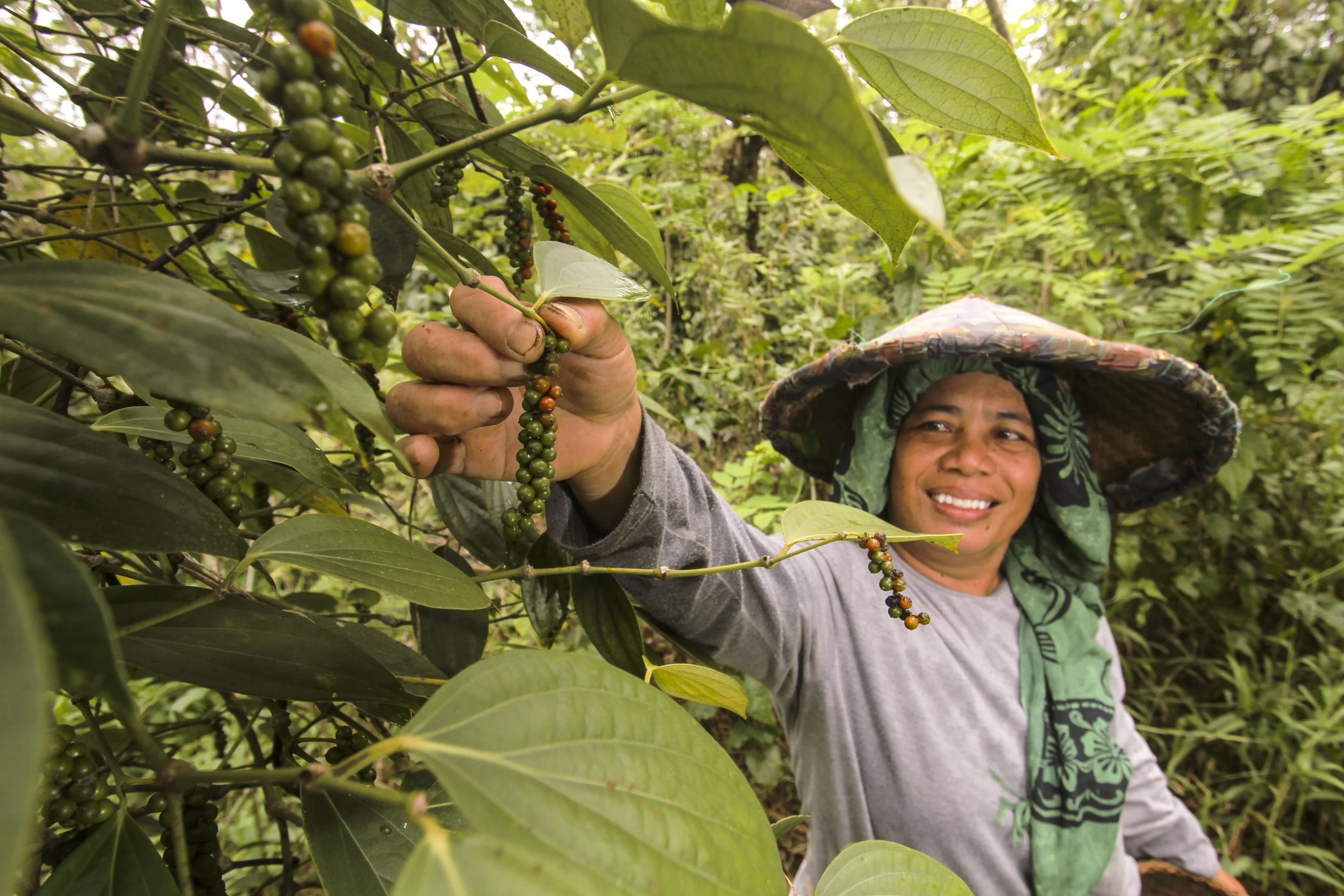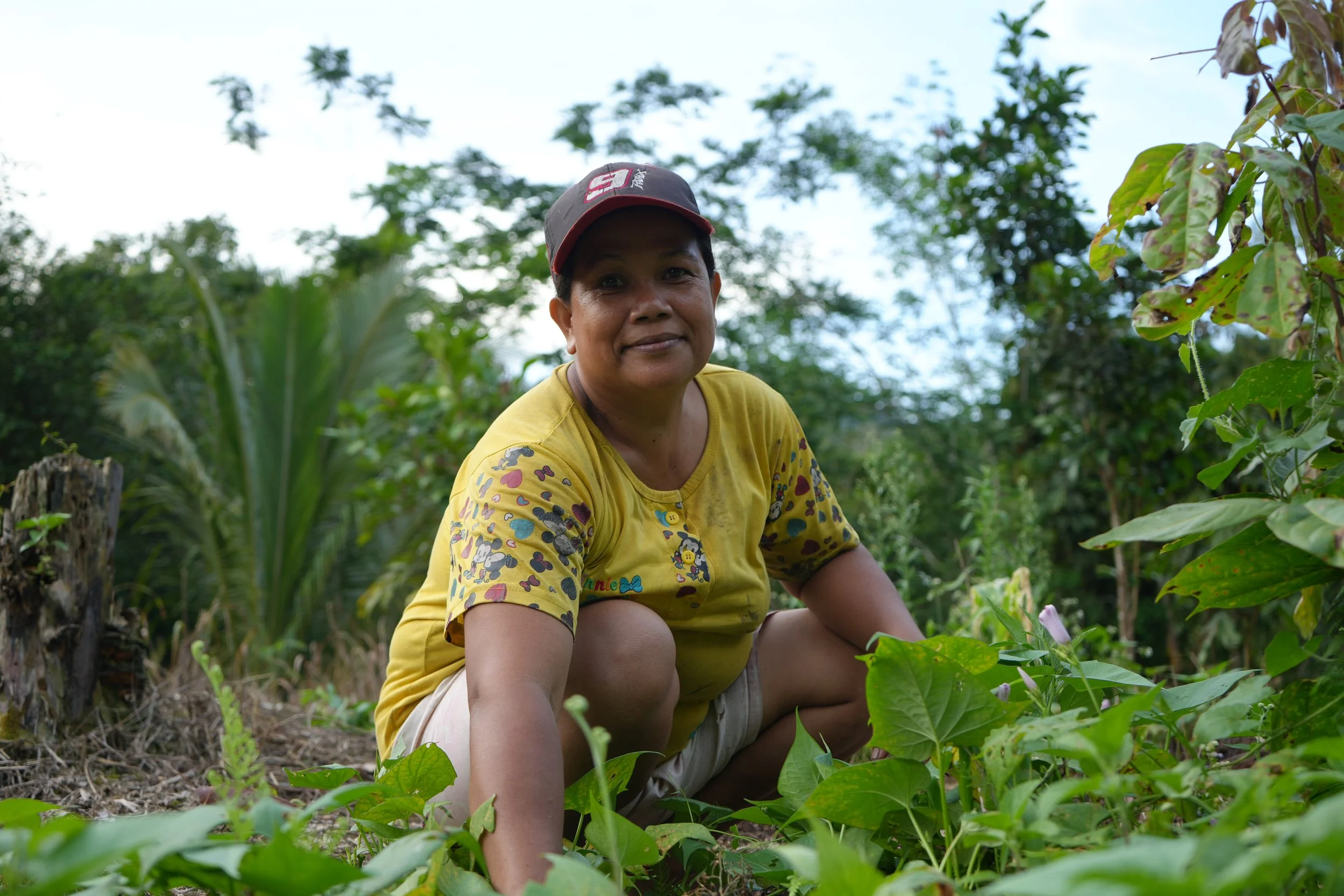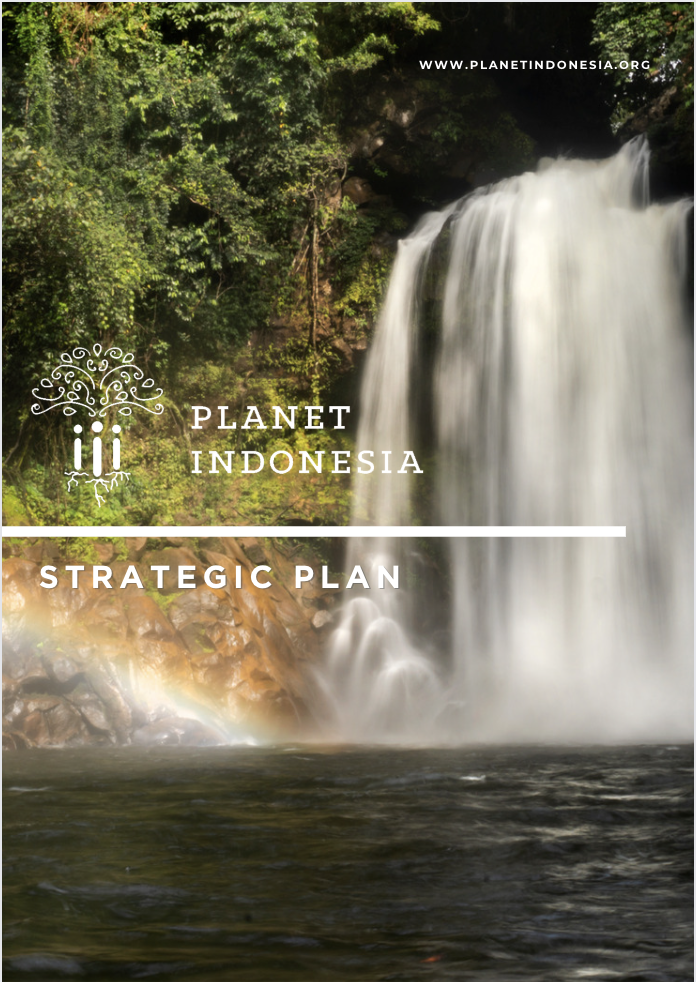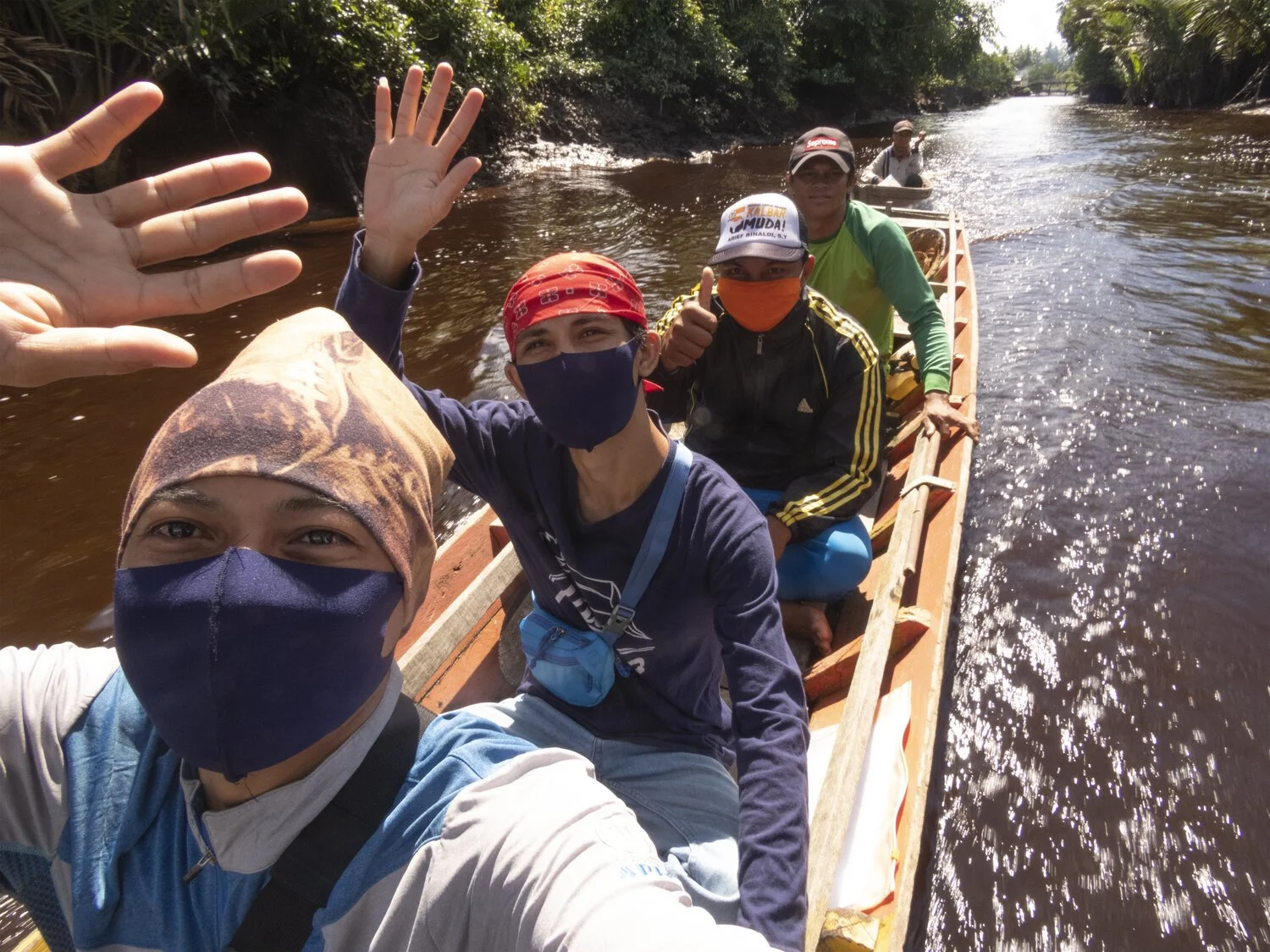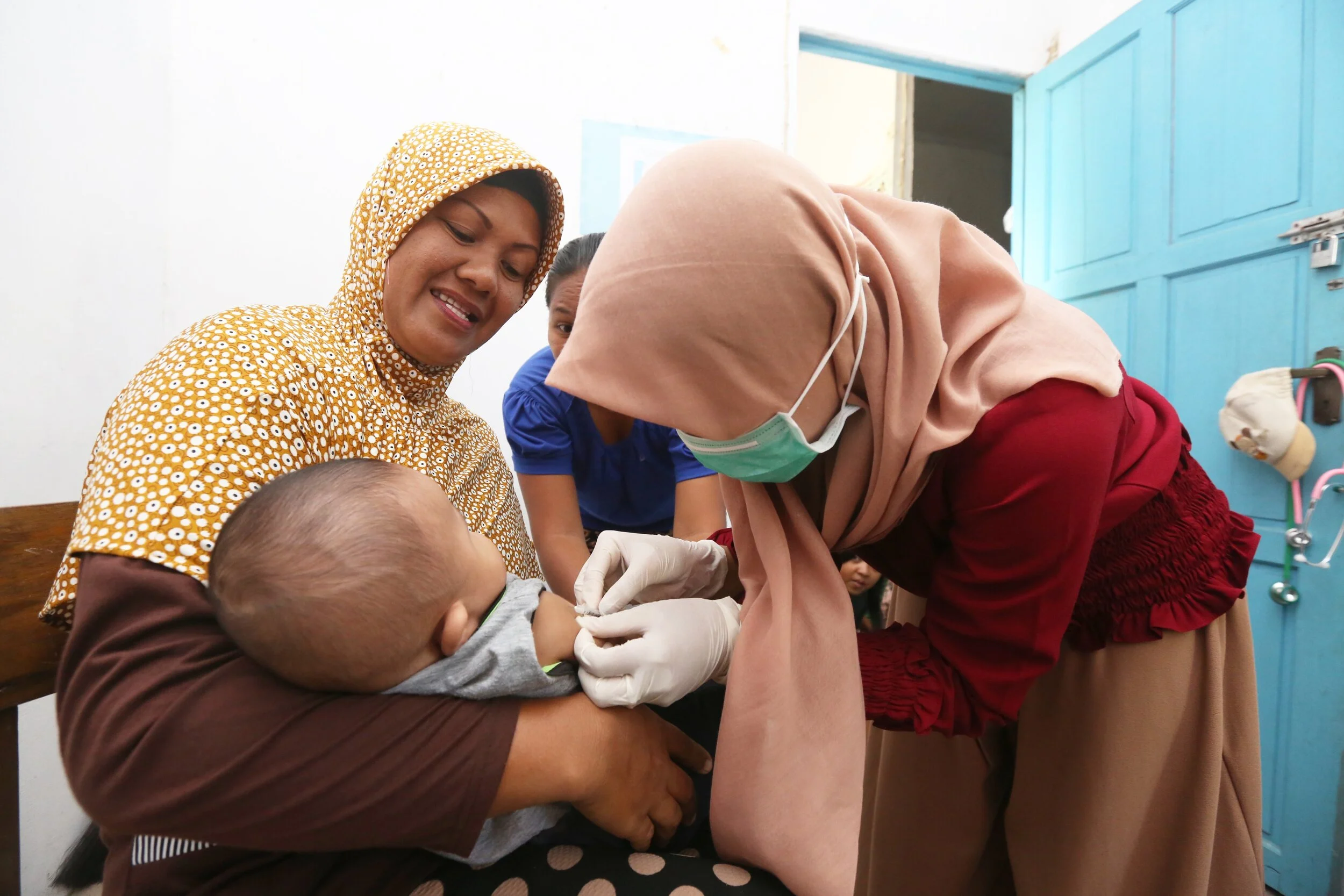Amid the rising temperatures, we have been reflecting. The team just gathered for our 6-month retrospective of our new structure and strategy to ensure that the services we provide and the impact we strive for are delivered in the most effective way. What better time to look back at our achievements of 2022.
In this report, we detail our new theory of change, the reach, and impact we have had over 2022, stories from the communities we support, our financials and share our thanks for all our supporters, and have a preview of what is to come in 2023.
Drawing on the wealth of knowledge on rights-based approaches as well as our team’s decades of experience in implementing community-based conservation programs, our project looks to implement one of the largest IPLCs recognition projects ever undertaken in Sumatra and Borneo. We are grateful for the Darwin Extra award and their crucial support in addressing the underlying drivers of biodiversity and cultural loss, helping communities make their vision for a better future a reality.
Read MoreFor World Oceans Day 2023, we are highlighting the communities we support in the Karimata Marine Reserve and the work they are doing for their part in conserving the world’s oceans.
Read MoreUndoubtedly investments in grassroots efforts have increased, however, so has the confusion around various ‘community first’ terms. While investment is a step in the right direction, we have concerns that we are not witnessing a revitalization of people-centered approaches but rather a rebranding of less effective models under new shiny terminology.
Read MoreA recent publication in the journal Environmental Development reveals the relationships that exist between human well-being and environmental outcomes in Indonesia and the role a Community-Led Integrated Landscape Initiative can play in addressing positive outcomes for both.
Read MoreThis first, full, five-year strategic plan now provides a cohesive direction for Planet Indonesia operations and management, recognizing that the approach will be flexible, adaptive, and reviewed regularly in the future.
Read MoreThe forest honey produced by the itama honey bee is some of the best that can be tasted. It’s rich, sweet, and unique in flavor as it is transformed from the nectar of many flowering plants in the biodiverse forests of Gunung Niut, Borneo. In 2019, we worked with our conservation cooperative partners in Umbo village and a beekeeping expert Pak Abdurahman to develop the stingless bee project, a livelihood development initiative providing community members an alternative source of income. The journey, its frustrations, and fruition to create the first beehive were documented in a five-part short film series.
Read MoreYayasan Planet Indonesia has pioneered a model of community-based conservation through their ‘Conservation Cooperative’ model that addresses the underlying drivers causing climate change vulnerability in partner communities. They have created village-led partnerships to support ecosystem-based adaptation (EbA) by instituting community governance structures (Conservation Cooperatives) that enable access to financial and non-financial services that catalyse community-based adaptation.
Adam Miller, Executive Director at Planet Indonesia, is joined in this conversation by Cécile Fattebert of the IUCN Protected and Conserved Areas team.
Read MorePlanet Indonesia, as a non-governmental organization that focuses on community empowerment and conservation in West Kalimantan, has assisted five villages that already have legality in the form of Village Forest Management Rights in Seruat Pulau Tiga Protection Forest Landscape, Kubu Raya.
Read MoreThe Wak Gatak Songbird Rescue and Rehabilitation Center is now fully open as of June 6th! We are now ready to begin serving birds rescued from the illegal wildlife trade and rehabilitating them for release back into the wild in their home ranges among areas where we support community-led forest protection efforts.
Read MoreTo help sustain the economically-significant population of mangrove crabs among the dense coastal mangrove habitat of Kubu Raya, Borneo, a group of communities has a simple method, give the crabs a break.
Read MoreSince working in the Gunung Nyiut Penrissen Forest Complex in West Kalimantan, we have observed a significant gain in aboveground carbon density. This means that the forests in this protected area have become a carbon sink thanks to the communities we support and their village-led conservation efforts.
Read MoreFor eight years Yayasan Planet Indonesia has been dedicated to serving communities and the ecosystems they safeguard through direct programs in Indonesian Borneo. Now, we are extremely excited that we have signed a four-year partnership agreement with JAPESDA and will work with them to positively impact communities in Gorontalo Sulawesi.
Read MoreThe Indonesian songbird trade is decimating wild bird populations. With a long cultural history dating back centuries, keeping songbirds in cages outside the home and entering birds into singing competitions is symbol of sophistication and wealth. We are working to address the illegal songbird trade through our Wildlife Trade Unit, Songbird Rescue and Rehabiliation Center, and enforecement and restoration in songbird natve habitat.
Read MoreCommunities living within Kubu Raya have adopted a rule to plant 10 new seedlings for every mangrove tree that gets cut down. This ruling has allowed residents to see an incredible increase in mangrove forest health. Read more about this story as featured by the Pontianak Post in this blog.
Read MoreAs we say goodbye to 2021 we reflect on the impact the team at Planet Indonesia has had and the incredible people who have made it all possible this year. See our 2021 impact by the numbers.
Read MoreWe are excited to announce that we are once again expanding our support to work with communities in West Kalimantan and will begin offering our services to two communities in Kalimantan’s largest marine protected area, the Karimata Marine Reserve.
Read MoreWe spoke with Agustar, who serves as the Head of the Mengkalang Jambu Village, one of the villages that has initiated the concept of community-based no-take zones (CBNTZs) to hear his thoughts on this conservation strategy and what it is like to have Planet Indonesia’s support.
Read MoreMeet Oka Pransiska, Planet Indonesia's Ecosystem Restoration Co-ordinator, learn about her work restoring mangrove habitats in Kubu Raya and just how vital it is for both people and wildlife.
Read MoreThis year has been an extraordinary year for our Healthy Family Initiative as we continue to face down a global pandemic, challenging us to continue to add COVID-19 related support to our regular programming.
Read More


